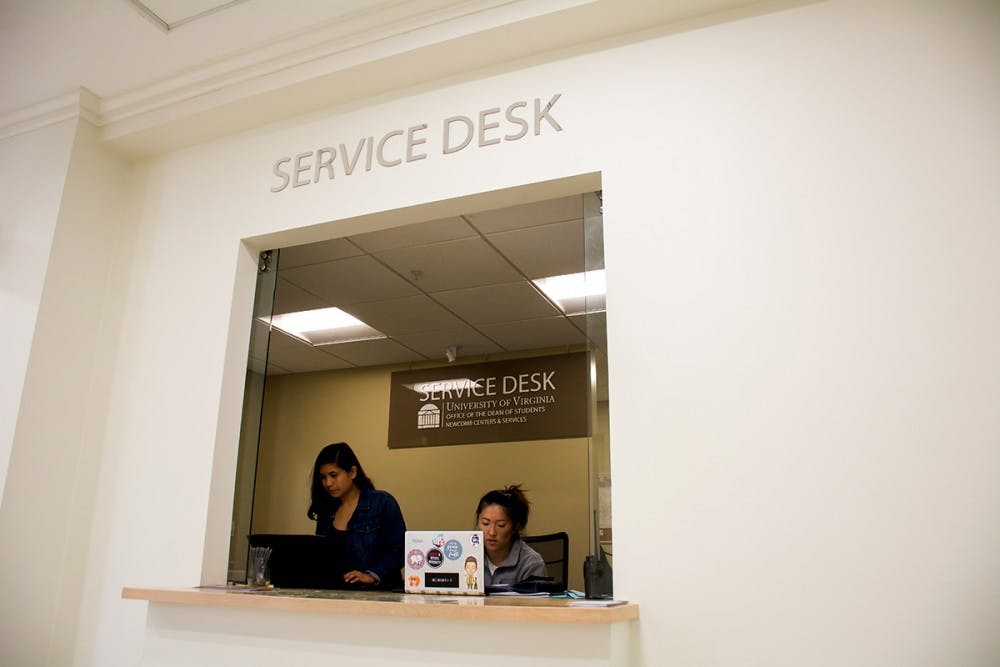In late March, Secretary of Education Betsy Devos went before Congress to defend the Education Department’s new spending proposal. While the proposal includes cuts to a number of departments, culminating in a $7.1 billion slash in spending, the Federal Work Study program may see only half the funds it has recieved in the past. The 2018 Education budget allotted $1.13 billion for the program, while the 2019 budget aims to reduce the funding to only $500 million by the year 2020.
The University is one of approximately 3,400 postsecondary education institutions that participates in this financial aid program. Federal Work Study is a financial aid award granted to those with demonstrated need, which allows students to work for an approved employer to help fund the cost of their college education and living. Individual work study awards are then determined and handed out by an institution’s financial aid office. At the University, undergraduate students may receive between $1,000 and $4,000 in the form of wages from an approved work study employer, while graduate students may receive up to $5,000. The University funds this program with money from the U.S. Department of Education. The Department of Education decides how much money to give an institution based on the “aggregate need of eligible students in attendance in the prior year.” Significant cuts to this program such as the one proposed could significantly reduce the aid that Federal Work Study provides to low-income students.
Devos provided legitimate criticisms of the Federal Work Study program when defending the budget cuts. She noted that the funding typically goes to “elite institutions” rather than those that serve more low-income students. This is a common criticism of the program, especially since community colleges, which serve a larger proportion of low-income students, only take in 15 percent of Federal Work Study funding. Nevertheless, many argue that continuing to limit the amount of funds for this program will only perpetuate this issue. In a comprehensive analysis of the FWS program by the Brookings Institute, “it’s simply not possible to cut the program in half without sharply reducing access” for low-income students at public institutions. Instead, the institute recommends that the Department of Education spends time “innovating, experimenting, and rigorously evaluating” the program.
Thirty-four percent of students at the University receive need-based financial aid, which includes aid from the Federal Work Study program. At a school in which the majority of students are in the top 20 percent of the federal income bracket, it is imperative the University take steps to ensure that low-income students are able to have a place on Grounds. As the Board of Visitors approved tuition and fee increases for the 2019-2020 academic year, and President Ryan’s tuition promise enacts no significant change in financial aid, protections for low-income students who must navigate an increasingly expensive college life are essential.
Fortunately, student advocacy has the chance to ensure employment opportunities. For example, students have created and circulated a petition to oppose proposed changes to Newcomb Hall, which could decrease the number of student employment opportunities. This petition portrays the importance of convenient employment for students who have to work in order to pay their rent, groceries and other academic costs. The petition description claims that these structural changes, brought on by a budget deficit, have already caused many employees to quit, forcing a “systemic overworking of those who choose to stay or, for financial reasons, cannot choose to leave.” It is important to note that many of those who work at Newcomb Hall are low-income and/or minority students.
Though work-study students are not guaranteed a position through the program, work study employers prioritize these students’ applications. However, it is still difficult for work study students to quickly and simply find other jobs around Grounds. Although work-study positions are available at other places around the University besides Newcomb, a reduction in the number of spots for these students makes available ones more competitive, thus making work-study aid less accessible to qualified students.
Cuts to spending at the University have already negatively affected student employment opportunities and therefore work-study positions. Without the funding that the University receives from the federal government to help pay work-study students, the ability of low-income students to afford life in in the community could become increasingly threatened. Even if the significant cuts to the Federal Work Study program disallow the University to provide the same financial aid awards, they must continue to provide students with ample employment opportunities in places that already hire students.
Victoria McKelvey is an Opinion Columnist for The Cavalier Daily. She can be reached at opinion@cavalierdaily.com.







